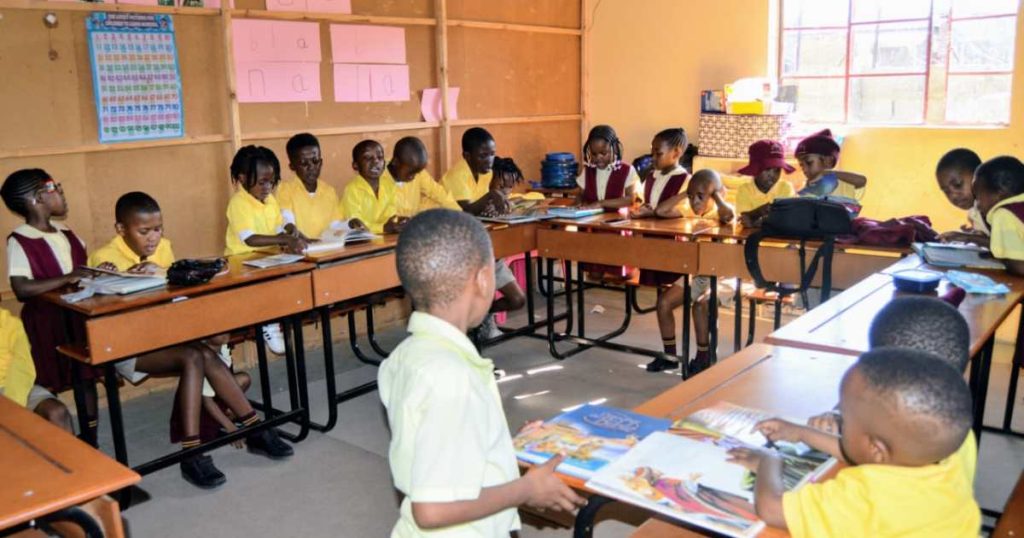In Maseru, Lesotho, there is a growing trend of boarding schools catering to toddlers and preschoolers, providing a more affordable option for working-class parents who have limited choices. Mathapelo Phalatse, a teacher at the Child Guidance Center (CGC) in Qoaling, not only educates the children but also provides them with physical and emotional care. With fees of 2,500 South African rand per month, parents seek these boarding schools as alternatives to leaving their children with nannies or relatives while they migrate in search of better economic opportunities.
Lesotho, with a 16.5 percent unemployment rate and a significant percentage of its population employed in the informal sector, faces challenges in providing economic opportunities for its citizens. Many lower-skilled workers migrate to South Africa for better jobs, leaving their children behind. This has led to the rise of boarding schools like CGC, which cater to children from ages two to twelve, offering a safe and inclusive environment for their academic and personal development.
For parents staying in Lesotho, boarding schools have also become a popular choice for ensuring their children’s safety and well-being. Bongiwe Zihlangu, a journalist in Maseru, enrolled her son at CGC due to the demands of her job and the inadequacies she observed with nannies. CGC provides a holistic approach to childcare, encompassing education, emotional support, and a nurturing environment for the children. The boarding school fees, covering all expenses in one combined payment, make it a feasible option for many parents.
Despite the benefits, concerns have been raised about the psychological impact of separating toddlers and preschoolers from their families at such a young age. Some experts, like Matlheleko Tsatsi, warn about the potential negative effects, such as constant illness, homesickness, and emotional instability. While CGC offers counselling services to help children deal with family-related issues, some believe that children at such a fragile age should not be placed in boarding schools. UNICEF has also cautioned against boarding schools for children under 14, emphasizing the importance of family relationships and personal development during early childhood.
Action Lesotho’s Thapelo Khasela highlights the systemic issues that contribute to the migration of parents without their children, including low minimum wages and limited opportunities for entrepreneurship. He suggests that the government and NGOs should collaborate to support small-scale businesses and enhance access to funding, thereby creating more economic stability and encouraging parents to stay in Lesotho. While the decision to migrate for better opportunities is challenging for many parents, addressing these underlying issues could help alleviate the need for separation from their children.
In conclusion, the emergence of boarding schools for toddlers and preschoolers in Lesotho reflects the economic challenges faced by working-class families and the complex decisions parents make to provide for their children. While these schools offer a supportive environment for children in the absence of their parents, concerns about the emotional well-being of young children raised by experts and organizations like UNICEF underscore the need for a broader discussion on childcare practices and social support systems in Lesotho. By addressing economic disparities and promoting entrepreneurship, the government and NGOs can work towards creating a more sustainable and family-friendly environment for all members of the community.













